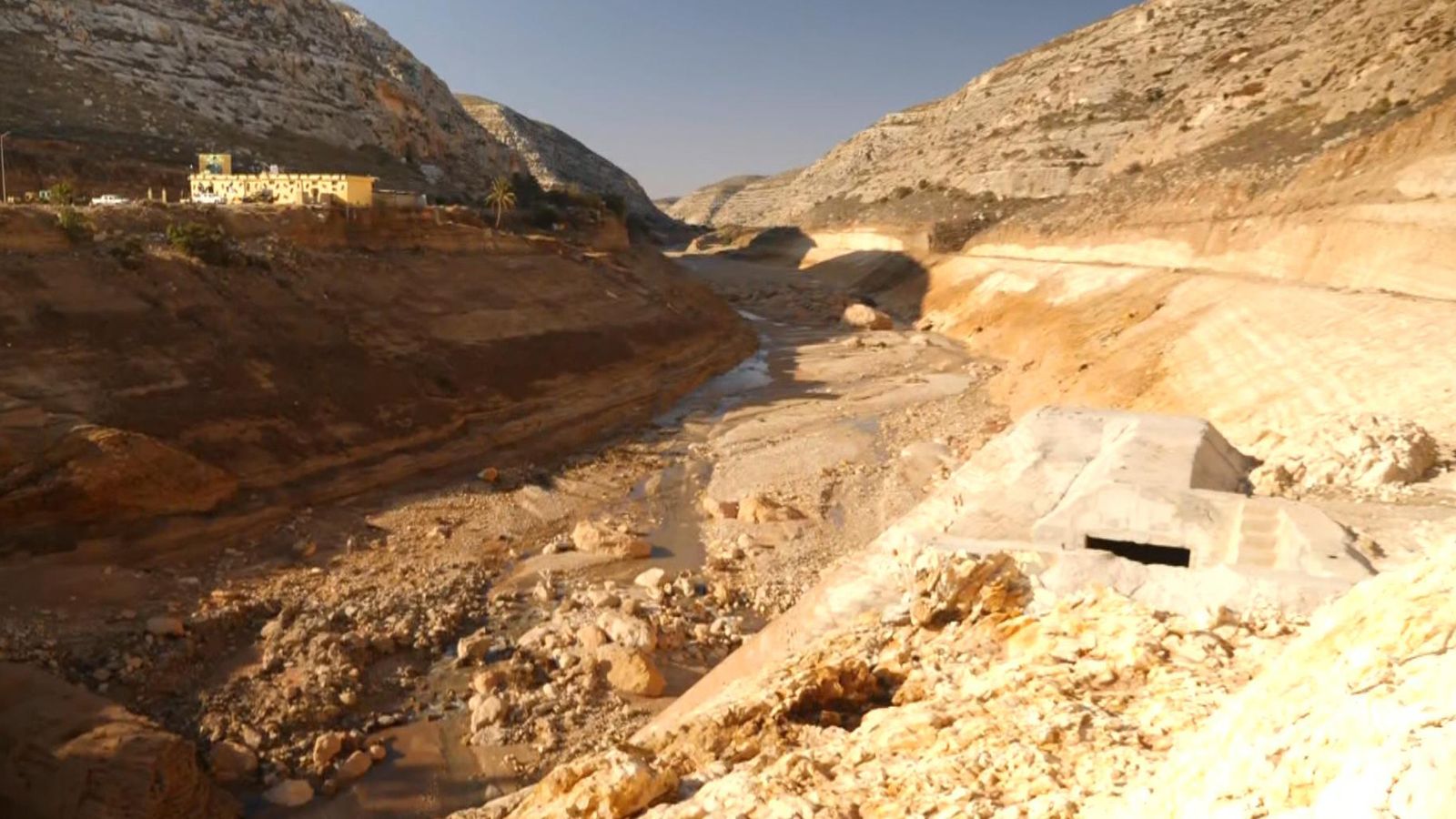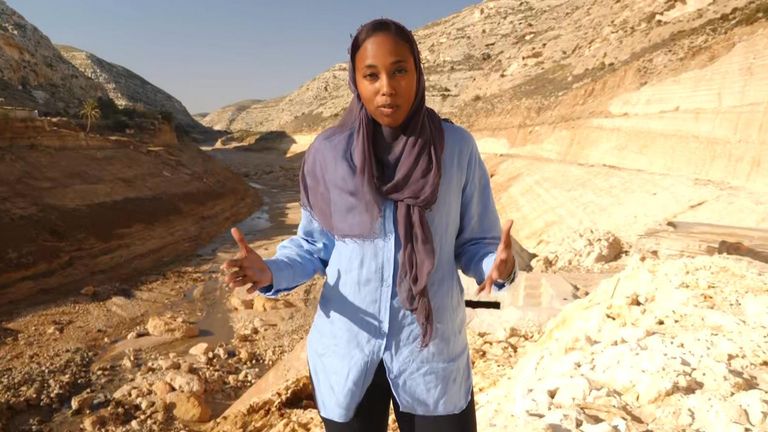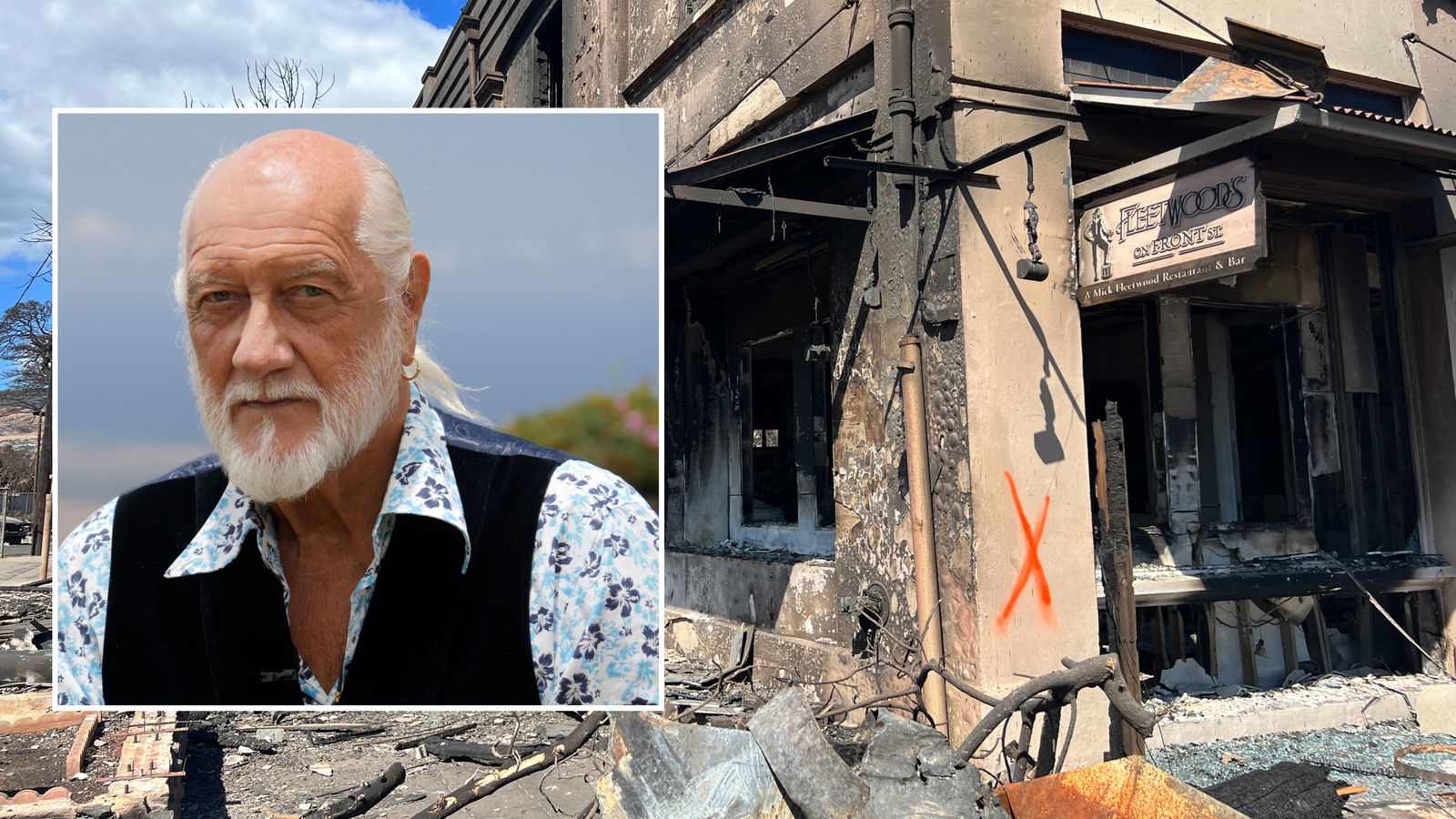Libya floods: The Wadi Derna ‘dam of death’ – where people will ‘never forget what happened here’


Locals now call Wadi Derna “the dam of death”.
In a moment’s notice, the structure unleashed tens of millions of cubic metres of floodwater on Derna’s residents.
The torrents swept generational homes and entire families into the Mediterranean sea – leaving onlooking survivors in a state of shock and horror.
Read more: Desperate search for survivors continues amid devastation – Libya floods latest
As we walked across the emptied river bed, residents stood on the precipice of the cliffs.
Their eyes stuck on what was once the dam.
A collapsed ridge of concrete and a debris-filled cylindrical pipe flung to the side.
A road that connected the valley is now shredded – the two sides of tarmac reaching over the edge to each other.
This is a site of swift colossal damage.
‘I heard women and children screaming in a school’
“We will never forget what happened here,” says Safwat Ashraf, a 24-year-old teacher.
“Our community feels destroyed. It’s a small tight-knit city where everyone knows each other. Our friends and families are all gone.”
His house is on one of the higher plains. Across from their home, a primary and secondary school sits battered on the valley’s edge. Its wall was ripped apart and thrown into the river bed.
Safwat says he heard women and children screaming who had sought shelter in the school.
Residents tell us that one family climbed up to the school from their house to stay safe from the torrential rainfall of Storm Daniel.
The water unleashed by the Wadi Derna dam, a second and final barrier to one higher upstream, killed 27 members of the family.
Tree trunks and large twisted roots jut out the skeletal school structure. The yard – now wall-less and exposed – opens out to the mouth of the valley and into the Mediterranean sea.
Please use Chrome browser for a more accessible video player

2:30
Libya: ‘Residents weren’t warned’
Read more:
Before and after pictures show devastation of Libya floods
What caused sheer scale of destruction in flooded Libyan city?
Residents sit on the edge and look out at a scene of utter destruction.
A vein that has cut through their town.
Diggers claw at a silt-covered riverbed to find those buried and left behind by the receding waters.
One man, Moji Mohamed, is holding the hand of his four-year-old son as he looks around unbelievingly.
He tells me he’s lost his elder brother, aunt and five cousins.
This coastal city has endured Islamist extremism and years of political chaos during Libya’s civil war.
Overnight, the years of neglect and mismanagement Derna has faced was laid bare in the shape of two broken dams. With a flood warning that came from nature but not from their government.


